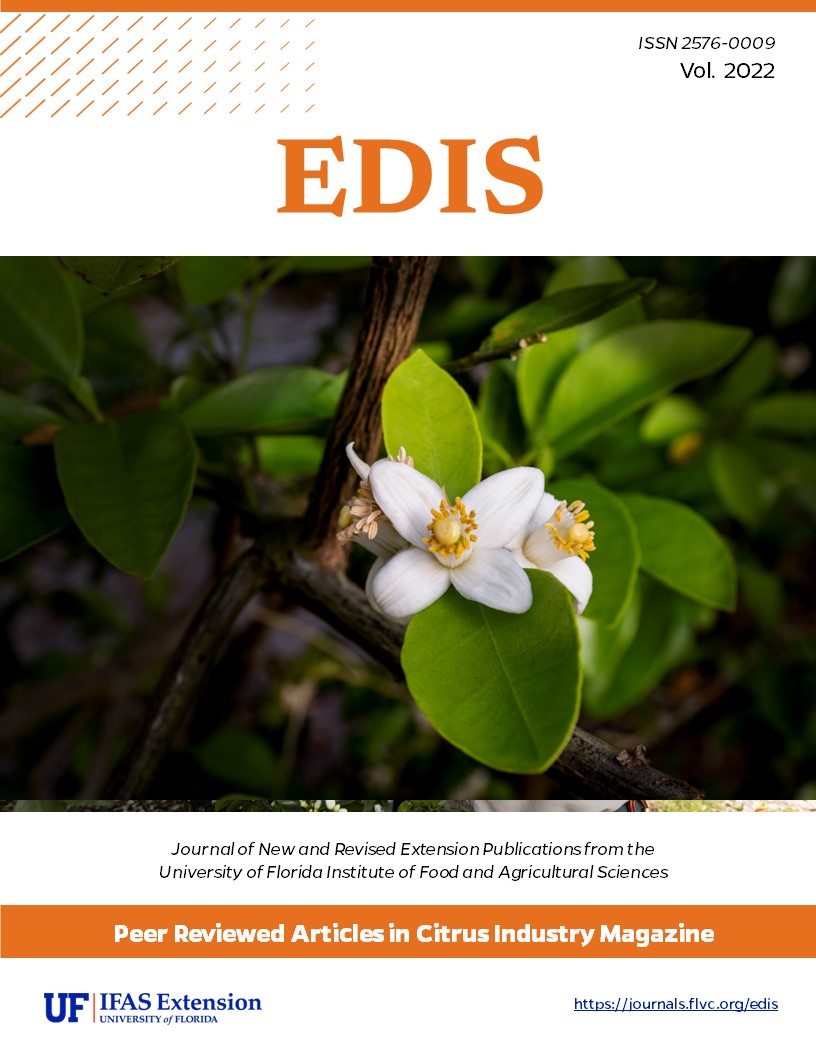Abstract
An alternative approach for suppressing ACP populations which has not been tried before, is the use of pesticidal proteins that are produced by bacteria. The soil-dwelling bacterium, Bacillus thuringiensis (Bt) produces lots of proteins that are insecticidal against certain types of insects. These proteins allow Bt to enter the insect host, divide inside the body of the insect ultimately killing it. Bt is a valuable natural product for insect control and is widely used to control mosquito larvae residing in pools of water, and in organic agriculture for example. Drawing on the use of Bt pesticidal proteins for management of other insects such as the western corn rootworm in maize and the pink bollworm in cotton, researchers at the University of Florida tested multiple Bt pesticidal proteins for toxicity against ACP. To date, we have also produced citrus seedlings that express the Bt pesticidal protein and verified that these can kill feeding ACP. However, the selected Bt pesticidal proteins showed only moderate killing of ACP and by themselves may not represent a major advancement over the efficacy which could be obtained with insecticides. The next step has been to test the effects of the pesticidal protein in combination with gene silencing RNAs. Gene silencing RNAs are small molecules that reduce or block the expression of ACP genes that are essential for survival of the psyllid.
Although our project has met several pre-determined milestones with success in a laboratory setting, we recognize that several challenges must be overcome to deliver a field ready technology to growers who need new tools now. We are therefore frequently sharing our results with industry personnel to receive feedback on how to minimize potential regulatory challenges to acceptance of a field ready product. A field ready tool that combines Bt pesticidal proteins with gene silencing RNAs will not by itself solve the problem of citrus greening. We envision this technology to work in concert with an integrated program that simultaneously focuses on plant health and potentially targets the pathogen itself. However, this novel two-pronged approach for managing psyllids is expected to reduce our reliance on insecticides and increase our capabilities in wiping out psyllids on a large scale.

